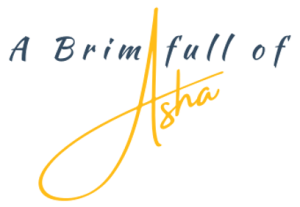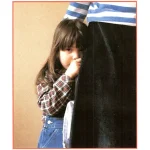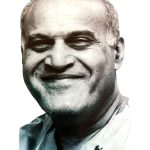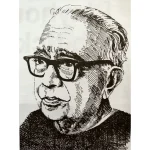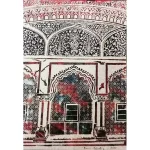
Tall, lanky and debonair, ‘the national heartthrob’ and the biggest box office draw in India, the superstar and the one-man industry, was due to visit Dubai in 1981 and I was asked by the editor to do a piece for ‘Al Juma’, the weekend magazine of the Gulf News. Rumours that the formidable Bachchan phenomenon is over had been around for a few years but in 1981 the demand on the dark, taciturn star seem to be never-ending.
We learnt that film contracts starring Amitabh Bachchan had been inked until 1984 and more offers were flooding in. Should he refuse to act in a film, the chances are the film would be scrapped. The ‘Amitabh Cult’ had reached international proportions – fountains of fan mail arrived from all over the globe containing adulation and propositions. In New York, a mob once tried to tear his clothes off. Barbers offered ‘Amitabh Bachchan haircuts’ and every teenager went through an ‘Amit’ phase. They aped his measured way of speaking and considered themselves ‘Dadas’.
In his early years in films, he was considered too tall and his rugged looks a disadvantage. But slowly, every Amitabh movie became a superhit and he brought the anti-hero angry young man concept into the forefront. It is said that he returned to his dressing room in between shoots to read Tennessee Williams and Scott Fitzgerald. Perhaps that is the real Amitabh.
Looking for people who knew Amitabh was not as difficult as I had imagined. I was fortunate to come across someone in Dubai who had shared bachelor digs with him in his Calcutta boxwallah days. ‘He was always very well accepted’, remarked his friend. ‘It was his style to get into the swing of things. If you handed him a dholak at a party, he would sit down and sing without thinking twice, and he sang very well. In the early days, when he was living in Bombay and struggling in the film industry, he stayed as a paying guest and often found time to take his elderly landlady out for lunch.’ In early 1981, next to Prime Minister Indira Gandhi, Amitabh’s was the best known face in a land of 600 million people that was India.
My article in Al Juma was well-received and the next day I had a call from Dubai Radio. ‘We have read your story on this Bollywood actor and we have had many requests from our listeners to interview Amitabh on the radio. We feel you would be the right person to chat to this star for us.’ I could not believe my ears and my instant reaction was sorry I can’t do it as I haven’t spoken on the radio before. But ‘No’ was not an answer you gave to the Head of Dubai Radio.
Radio is a very powerful medium. As an interviewer, you talk to the listener on a one-on-one basis. It is like having a personal chat except that it is being aired and heard by thousands of listeners. In 1981, radio had a large audience base and inevitably a huge reach. Not having a clue how to conduct a radio interview, I rushed to Studio One, the English language service of Dubai Radio, and asked for help. I was given a crash course in what questions to ask, how important the intonation of your voice was, how to deal with pauses and most importantly how to put your guest at ease. Of course, with Amitabh, one was not dealing with an amateur. He had been on hundreds of radio shows and it was just like chatting to a friend.
The 20-minute interview was aired and the lines to the radio station were jammed with people voicing their appreciation and delight at hearing the heartthrob in person. I got a pat on the back from the Director and a by the by remark that since this had been so successful, I was expected to do an interview programme once a week on a regular basis. I was flabbergasted and thrilled. This was the beginning of a radio programme that continued for 12 years during which I had the opportunity to interview the likes of Tina Turner, Bjorn Borg, Lata Mangeshkar and many more. It was a once-in-a-lifetime experience.
